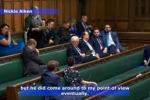MP for the Cities of London & Westminster, Nickie Aiken, called on the Prime Minister, Boris Johnson, to ensure the UK leads the world on girls’ education.
Covid-19 has unleashed a global learning crisis for children, and this affects girls most acutely. Billions of days of vital education have been lost, with children in low-income countries worst affected.
During the G7 over the weekend, plans were made to lift women out of poverty and build back a more equal world by putting 40 million more girls into school in the next five years. Throughout the COVID-19 pandemic, UK NGOs have adapted programmes to ensure children can still access education remotely.
Nickie believes that now more than ever, it is essential for girls’ education to remain at the very heart of the UK’s approach to aid, international development and foreign policy.
In response to Nickie’s call for action, the Prime Minister announced that the UK is contributing £430 million into the Global Partnership for Education, and more is to come in July.
You can read Nickie’s question to the Prime Minister, and his response below
The G7 set out plans to lift women out of poverty and build back a more equal world by putting 40 million more girls into school in the next five years—another example of global Britain as a force for good.
Does my right hon. Friend agree that investing in women, particularly girls’ education, is one of the most efficient ways to create economic growth in developing countries? Can he confirm that the UK will continue to lead the way on girls’ education moving forward?
The Prime Minister responded
My hon. Friend is completely right. I think that investing in girls’ education—12 years of quality education for every girl—is probably the single best, most efficient policy that we can support around the world. That is why we are putting another £430 million into the Global Partnership for Education, with more to come in July.






